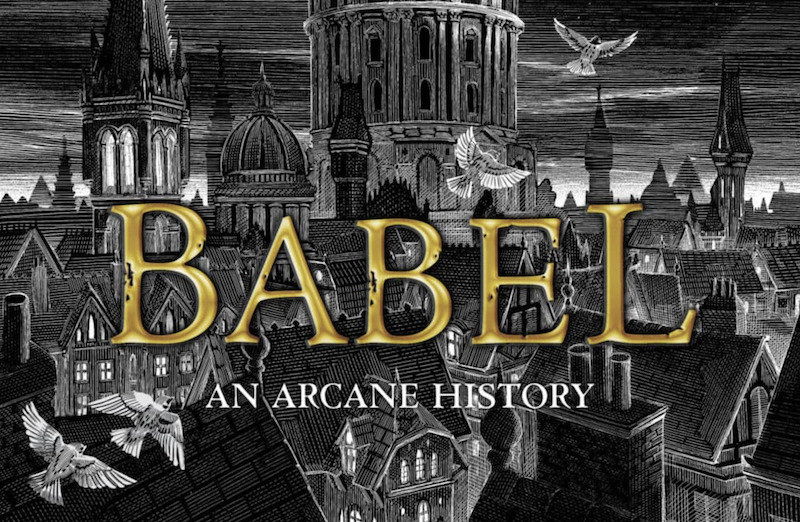Babel: An Arcane History Review
Imagine a world where the Industrial Revolution is side-tracked by the discovery of magic. And I don’t mean just any magic. This magic is derived from the connections between languages. Take a word in Mandarin and find its magically paired equivalent in Mongolian, Tamil, or English, and pow! Magic.
Such is the world of R.F. Kuang’s Babel: An Arcane History, or On the Necessity of Violence. And while I may have a soft spot for old-timey, unwieldy titles, it’s the rest of the book that won me over.
Don’t let the art fool you… For many reasons, this ain’t Hogwarts.
The book follows Robin Swift, a Cantonese orphan adopted by a cold and distant professor at Oxford University in the early 1830’s. Robin is trained from a young age to be a translator at Babel, Oxford’s Translation department. In a world ruled by language magic, Babel is the cornerstone of the British Empire, with all the perks and ethical baggage you might imagine.
At Oxford, Robin meets his cohort and closest friends: Ramy, Victoire, and Lettie, from Calcutta, Haiti, and England respectively. He also meets a familiar stranger and thief named Griffin, who introduces him to a world of crime and rebellion under Babel’s proverbial nose.
I loved this book, and I wish I had it back when I was explaining to AP Lit students what Post-Colonial Literary Theory was. The heart of this book is about how colonizers impact the colonized. By basing the magic system on language, Kuang moves beyond the economics of imperialism and into a deeper conversation about culture; language, after all, is a pure expression of culture. Robin and his friends have to deal with assimilation in a society that will never really accept them, their heritages being peddled as commodities, and navigating the “gifts” of a colonizer paid for with blood.
That sounds very dreary, and it often is. But the book approaches these ideas in fun and interesting ways. There are heists and explosions and daring escapes. And throughout the story, we’re grounded by Robin and his friends, and the memory of a short, uncomplicated time in which their friendship feels safe from the concerns of geopolitics and power.
I believe that when it comes to reviewing books, ratings need to be given on the basis of whether a book achieves its goals. Babel is thoughtful and thrilling; it’s personal and universal. And while I had some reservations about “the necessity of violence,” it makes a damn strong case for it. 4.8 silver bars out of 5.
